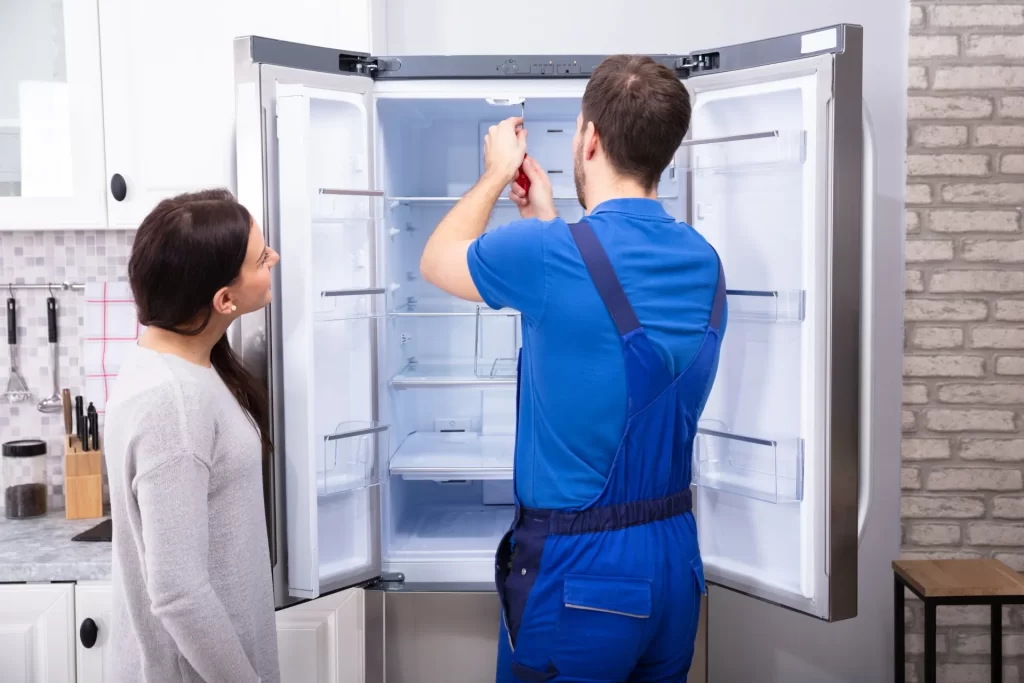Introduction
Refrigerators are an essential part of our daily lives, keeping our food fresh and our drinks cold. However, like any other appliance, they can develop problems over time. In this article, we will explore common refrigerator problems and provide you with practical troubleshooting steps to help you get your fridge back in working order.
The Fridge Isn’t Cooling Properly
One of the most common issues with refrigerators is when they fail to maintain the desired temperature. When your fridge isn’t cooling properly, it can lead to spoiled food and drinks.
Check the Temperature Settings
The first step in troubleshooting this issue is to check the temperature settings. Make sure the thermostat is set to the right temperature (usually between 37°F and 40°F or 3°C and 4°C). If it’s set correctly and the fridge is still not cooling, move on to the next step.
Clean the Condenser Coils
Dirty condenser coils can hinder the cooling process. Unplug the refrigerator, locate the coils (usually at the back or underneath), and clean them using a brush or vacuum cleaner.
Test the Evaporator Fan
The evaporator fan circulates cold air throughout the fridge. If it’s not working, your fridge won’t cool properly. Listen for the fan running; if it’s silent, you may need to replace it.
Note that on some of the fridge models, evaporator fan run when all doors are completely closed.
The Fridge Is Leaking Water
Water pooling inside or around your refrigerator is another common issue. It can be caused by various factors.
Check the Drain Pan
A clogged or overflowing drain pan can lead to water leakage. Remove the pan and clean it thoroughly. Make sure it’s properly aligned and not cracked.
Note that in some of the fridge models, drain maintenance must be done by a certified technician only.
Inspect the Water Supply Line
If your fridge has a water dispenser or ice maker, a damaged or loose water supply line can cause leaks. Check the line for any visible issues and replace it if necessary.
Unusual Noises from the Fridge
Strange noises coming from your refrigerator can be unsettling. They can indicate underlying issues that need attention.
Listen for Clicking Sounds
Clicking sounds may indicate a faulty compressor relay or a malfunctioning thermostat. It’s advisable to call a technician to diagnose and fix the issue.
Check for Rattling or Vibrating Noises
Loose components, such as condenser coils or fan blades, can create rattling or vibrating noises. Tighten any loose parts to see if the noise stops.
The Fridge Is Freezing Food
If your refrigerator is turning your fruits and vegetables into ice, you have a problem.
Adjust the Temperature
Check the temperature settings and adjust them slightly higher. If the fridge continues to freeze food, you may need to replace the thermostat.
Inspect the Damper Control Assembly
The damper control assembly regulates the flow of cold air into the fridge. If it’s stuck open, it can lead to overcooling. Check for any obstructions or malfunctions and replace the assembly if needed.
Conclusion
A malfunctioning refrigerator can be a source of frustration, but many common problems can be resolved with some troubleshooting. By following the steps outlined in this article, you can address issues related to cooling, leaks, and unusual noises. However, if the problem persists or is too complex to handle, it’s best to consult a professional refrigerator technician.
FAQs
- How often should I clean the condenser coils of my refrigerator?
- It’s recommended to clean the condenser coils at least once a year to ensure optimal performance.
- Why is my refrigerator making a humming noise?
- A humming noise is often normal and is caused by the compressor running. However, if it’s excessively loud or accompanied by other issues, it’s best to have it checked by a technician.
- Can I use a hairdryer to defrost my freezer faster?
- While it’s possible, it’s not recommended, as excessive heat can damage the freezer components. It’s safer to defrost it naturally or follow the manufacturer’s instructions. All modern refrigerators are equipped with Automatic Defrost System and should defrost automatically. If that does not happen, the system requires maintenance or repair.
- What should I do if my refrigerator is running constantly?
- If your fridge is running non-stop, it may be due to a malfunctioning thermostat or other issues. Contact a professional technician to diagnose and repair the problem.
- How can I prevent water from pooling in the refrigerator’s vegetable crisper?
- Make sure the refrigerator’s drain is clear and not clogged with debris. Additionally, avoid placing wet or overly moist items directly into the crisper.








